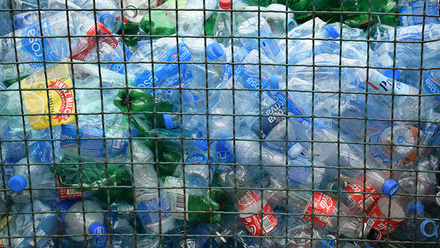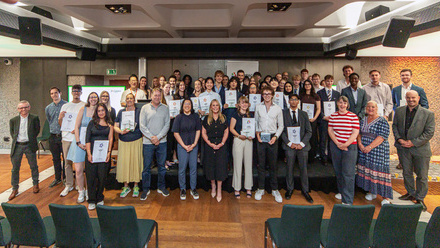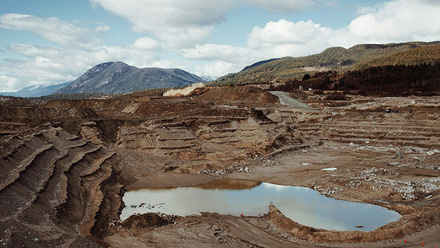Ensuring fairness in net-zero
The balancing act in ensuring fairness in the UK’s net-zero transition.

The cost of living and energy crises are adding to the squeeze, but it is the economic and industrial strategy that is driving the growing regional inequality in the UK. With deindustrialisation, poor management of industrial transitions and failure of the ‘levelling up’ agenda, the UK Government’s market-led, quick fixes are clearly not working.
For industry, many will be replacing fossil fuels by electrifying to secure a low-carbon future, others will be using carbon capture or hydrogen. Job losses aren’t inevitable in each industry facing change, but the plans we make now are vitally important, and must secure sustainable livelihoods for communities. What can we learn from other countries?
At its peak in 1957, Germany’s coal industry was too big to fail. It employed 600,000 people and was the economic and social backbone of the Ruhr region. When coal prices started to tumble in 1958, the German state jumped in to protect the industry with huge subsidies. This wasn’t sustainable long term and, from the 1970s, policymakers changed course and planned for economic diversification in the Ruhr.
Through the well-funded Ruhr action programme, local governments were given the power to decide how to develop – Dortmund becoming a technology centre, while Essen transitioned to one of the greenest cities in Europe.
Public investment in regeneration led to a tourism boom, which grew by 95% between 1990 and 2011. One of the mining sites is now a UNESCO world heritage site that celebrates industrial culture. It took nearly 50 years but, by 2018, the coal industry was gone.
Meanwhile, as this transformation was taking place in the Ruhr, Sweden was making strides of its own, becoming a world leader in the nascent, green, iron and steel industry.
Sweden has a long history of strong unions and government-industry collaboration. Since the 2010s, the government has been working together with industry and workers to formulate a long-term, transparent plan for the transition, starting with a roadmap for a 'fossil-free and competitive' steel industry by 2045.
In 2016, steel company SSAB, mining company LKAB and energy company Vattenfall AB began exploring ways to make the most of Sweden’s cheap, green electricity. They formed the HYBRIT project, which has transformed the steelmaking process, producing the world’s first fossil-free steel in 2021 and is now expanding to produce a quarter of Sweden’s total output by 2030, according to the European Commission.
Workers have been at the forefront of this process. By law, workers are represented on corporate boards, as in Germany. Union IF Metall represents 77% of Swedish manufacturing workers and holds significant political sway. IF Metall has been instrumental in negotiations around new and transitioning steel sites, retaining jobs and securing training so workers can adapt.
In these two examples, success in Sweden and Germany hinged on long-term, transparent, economic and industrial plans that involved workers and communities. Whether in decline in Germany, or growth in Sweden, what was offered was a shared sense of direction and a positive vision of transition.
Back on UK shores, the two industrial transitions dominating our headlines are in the steel industry, which has the potential to grow, and in North Sea oil and gas, which is in inevitable decline.
The deal for Port Talbot steelworks was disappointing. While the £500mln in government support ensures a cleaner steelmaking process, the loss of thousands of jobs and the years-long gap in production reflect a lack of foresight.
The £100mln transition fund for workers is unlikely to secure the futures of workers and communities. Local replacement jobs in steel processing to provide material for the planned freeport and floating windfarms in the Celtic Sea haven’t been explored, and economic diversification takes years, not months.
In the North Sea, production already sits at just 30% of its peak in 1999 and the number of jobs has halved in the last decade, despite government support. Aberdeen has been hardest hit, with each resident estimated to be, on average, £45,000 worse off, according to the Cities Outlook 2024 published by the Centre for Cities.
Recent interventions have failed to provide skilled local jobs. The Offshore Skills Passport, introduced to help previous oil and gas workers identify routes into the offshore wind sector, still leaves workers having to pay for their own training.
At the time of going to press, the UK Government is due to publish its Industrial Strategy imminently, and it is vital that it offers a step-change in how the government, industry and communities work together to build a better, greener future.
This needs to include space for economic diversification and local plans for workers involving them in development. Any government support should be conditional on such plans.





